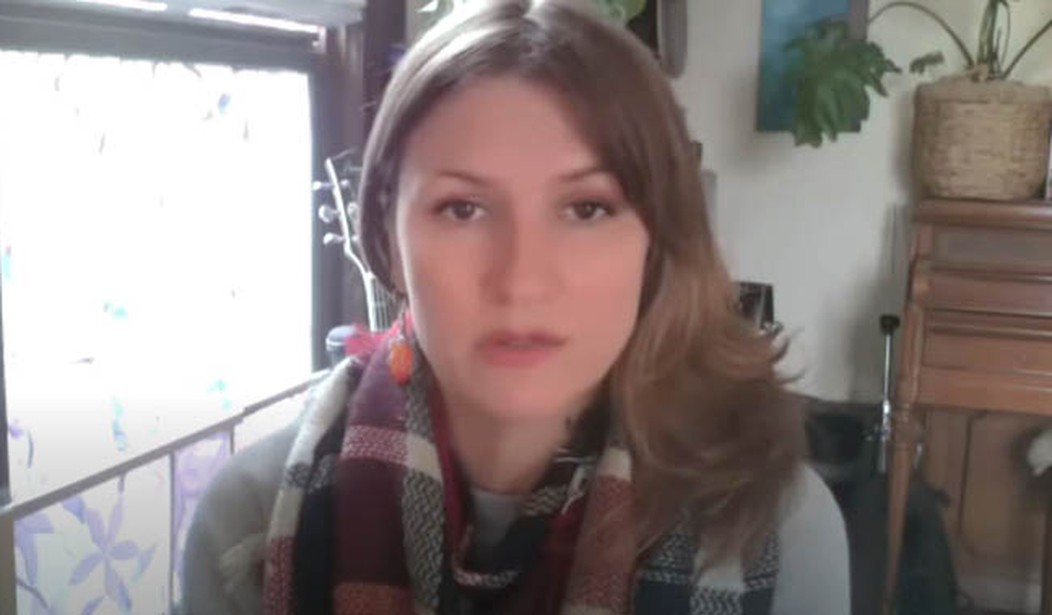This comes from the Free Press which has published a whole series of articles on how woke ideology is marching through different parts of the culture, from law to medicine. In today’s installment, author Lisa Selin Davis writes about the impact this politicized ideology has had on therapy. The piece opens with a story about a very progressive white woman in Portland who sought out a black therapist because of her own white guilt.
Initially, they practiced mindfulness and self-compassion techniques, from forgiving oneself out loud to the “butterfly hug,” crossing arms and tapping the chest. The therapist even cried with her when she cried about sexual assault or feeling unsupported in relationships. Cooney felt supported and eventually, more in control, more accepting of herself as female.
Then something unexpected happened. The stronger and more mentally healthy she felt, the less Cooney viewed the world through the lens that had informed her activism—a binary perspective that split all people into categories: white and black, oppressor and oppressed, victimizer and victim.
When she raised some of these new views with her therapist she was criticized and told not to bring it up again.
[The therapist] told Cooney that critiquing cancel culture was giving in to “white supremacy culture,” and said Cooney was making her feel “unsafe” as a black woman. By the end of the session, the therapist had given her an ultimatum: they could continue to work together and keep cancel culture discussions off the table, or “the relationship was over,” Cooney said.
Cooney stuck with the therapist for another six months but noticed that the therapist seemed to be stuck on the idea that Cooney would forever be a victim because she was gay. When Cooney challenged those ideas her therapist told her not to come back. She’d essentially been canceled by her own therapist.
As with many other professions, therapy has been infiltrated with identity politics. Neutrality is out and Critical Social Justice is in.
According to CSJ, one’s identity categories are paramount to the therapeutic process. Neutrality and objectivity—once the cornerstones of the practice—are now tools of oppression and white supremacy.
But there’s an obvious problem with this approach. It tends to treat people as members of a group rather than individuals.
“Psychology, and especially clinical psychology, is oriented to the individual,” said Tab Shamsi, a clinical psychologist at the University of Chicago who has written about his field’s ideological shift. “But a lot of this social justice ideology isn’t concerned about the individual.”
Critical Social Justice also seems to run contrary to the concepts of cognitive behavioral therapy which helps teach people to stop catastrophizing and to realize that improving a situation may be more achievable that it seems to them at a given moment.
…one therapist in training—who was afraid to be named—said that much of what she is learning is the opposite of CBT. “My concern is that we’re not helping people heal and transcend,” she said. “We’re just helping people live in their victim mentality.”
This is something that Matt Yglesias brought up a couple months ago. As he sees it, woke progressives are essentially being trained to catastrophize as a path to social power.
Life is complicated, and this is difficult. But for a very wide range of problems, part of helping people get out of their trap is teaching them not to catastrophize. People who are paralyzed by anxiety or depression or who are lashing out with rage aren’t usually totally untethered from reality. They are worried or sad or angry about real things. But instead of changing the things they can change and seeking the grace to accept the things they can’t, they’re dwelling unproductively as problems fester…
It’s wrong to suggest that someone needs to adopt the undignified posture of having been injured in order to stand up for herself. And it’s wrong to teach people that the right way to respond to someone else’s real or imagined misbehavior is to dwell on it and maximize their own pain. Yet even though I think it’s pretty broadly acknowledged that this is a bad way to live one’s life, our educational institutions have increasingly created an environment where students are objectively incentivized to cultivate their own fragility as a power move.
In any case, the new approach is being rolled out to students as a kind of purity test. Leslie Elliott who started a Masters at Antioch University at age 46 was required to sign a civility pledge which read:
I acknowledge that racism, sexism, heterosexism, classism, ableism, ageism, nativism, and other forms of interpersonal and institutionalized forms of oppression exist. I will do my best to better understand my own privileged and marginalized identities and the power that these afford me.
Elliott refused to sign and the school refused to grant her degree. Last October she released a video criticizing the school’s social justice focus. The dean of her school responded with a public statement accusing her of “expressing white supremacy, transphobia and other harmful ideologies.”
Here’s Elliott’s statement about her training at Antioch. What she’s describing here appears to be the norm now at many schools. “We were taught that our main role as counselors is not in our work with clients, individuals and families but rather as activists for social justice.”








Join the conversation as a VIP Member